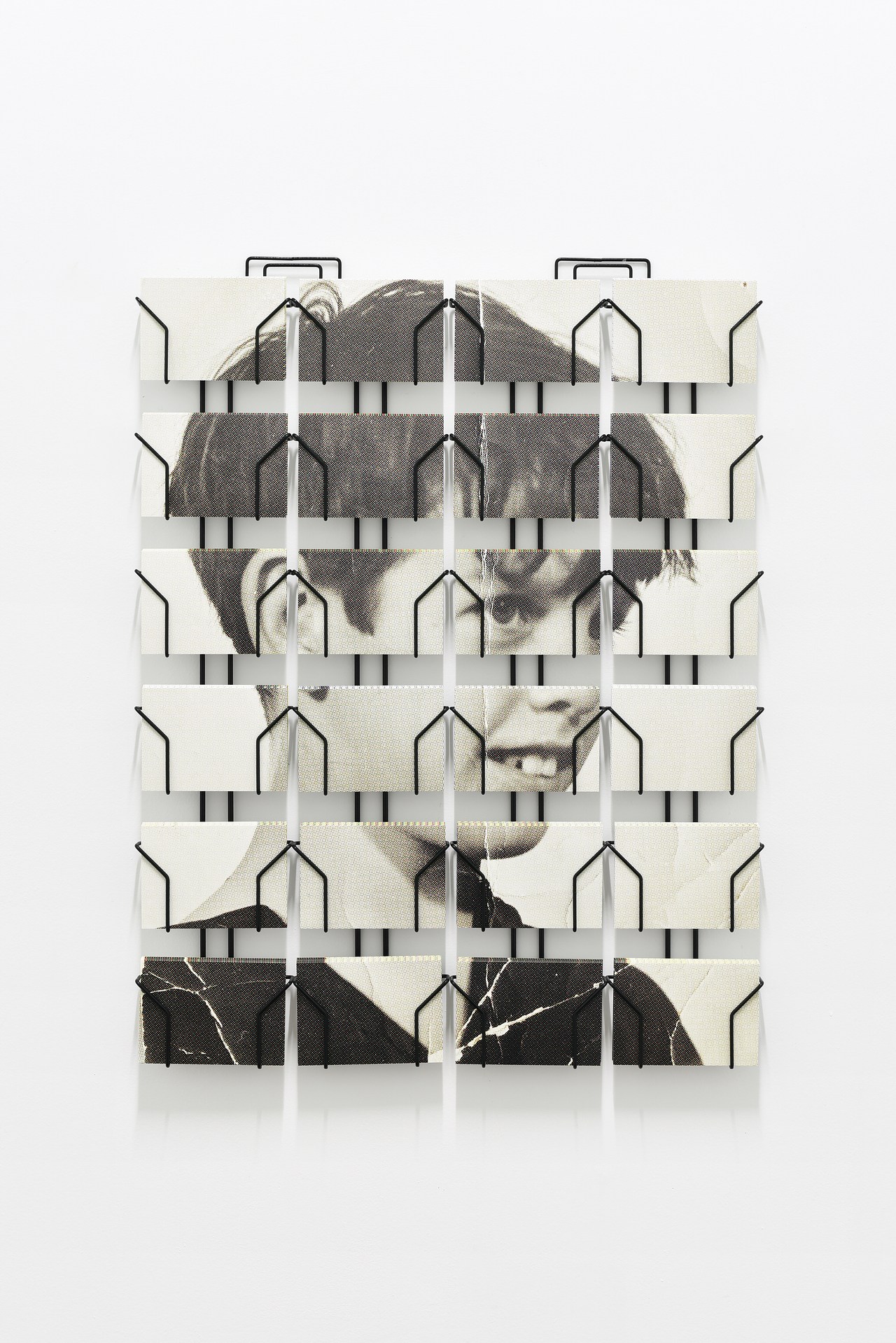Made in Heaven
2004 - Film & Video (Film & Video)
2 min
Mark Leckey
In Made In Heaven , we are face to face with a sculptural apparition, a divine visitation in the artist’s studio. It isn’t just any object, but an iconic sculpture of the end of the 20th century: Jeff Koons’ Bunny. One key question in this work is of course the construction of images, but there is also the question of sculpture, of the passage from two-dimensionality to three-dimensionality. The reason for using the moving image, above all theoretical, is also part of interrogation regarding the material construction of images. For this film, he remakes Koons’s sculpture in order to be able to experiment himself in his studio. One can discern the contours of his studio and sometimes his presence in a lot of his videos. With reference to Marcel Duchamp, he wants to create the ultimate Machine Célibataire (Bachelor Machine), by producing nothing other than itself in reference to the self- reflexivity of Pop. The Bunny is a sculptural form in space which also produces images. It is obvious that we are in an image which is entirely constructed since it is impossible to film the object without having, at a certain point, the reflection of the camera on the steel surface. Mark Leckey is interested in the possibilities of new technologies and places at the heart of his practice the revelation of a sensitive and quasi-magical world. The film loop (which only lasts 2mn) places the spectator in a completely hypnotic state.
Mark Leckey became know in the 1990s with a cult film Fiorucci Made Me Hardcore about English clubs since the early 1970s. Rather like Jeremy Deller, his work at the time was a mixture of Pop culture and counter-culture. In fact a constant in his work is an interest in the icons of our visual culture. In Felix Gets Broadcasted, he became interested in Felix The Cat who was first of all present at the beginning of the 20th century in over 250 newspapers and was the first character to benefit from TV transmission in 1928 in New York. This is the story of a cartoon hero and his successful conversion from cinema to the written press and then to TV, before being integrated into the art system. Mark Leckey is of the same generation as Damien Hirst but has had a very different career path. He was part of an alternative music band and is currently professor of the history of cinema in Frankfurt. He won the Turner Prize in 2008. Mark Leckey was born in Birkenhead, UK . He lives and works in London.
Colors:
Other related works, blended automatically

© » KADIST
Anthony McCall
1974This score is a graphic record of the detailed choreography of one of Anthony McCall’s Landscape for Fire performances...

© » KADIST
Toby Ziegler
2005The Fifth Quarter might have taken its mysterious inspiration from the eponymous Stephen King story collated into the Nightmares & Dreamscapes collection...

© » KADIST
Martin Boyce
2003In the installation Our Love is like the Flowers, the Rain, the Sea and the Hours, Martin Boyce uses common elements from public gardens – trees, benches, trashbins– in a game which describes at once a social space and an abstract dream space...

© » KADIST
Kota Ezawa
2014Paint and Unpaint is an animation by Kota Ezawa based on a scene from a popular 1951 film by Hans Namuth featuring Jackson Pollock...

© » KADIST
Andrew Grassie
2009In 2008, Grassie was invited by the Whitechapel Gallery to document the transformation of some of its spaces...

© » KADIST
Keith Tyson
The work of Keith Tyson is concerned with an interest in generative systems, and embraces the complexity and interconnectedness of existence...

© » KADIST
Charles Avery
2012Since 2005, Charles Avery has devoted his practice to the perpetual description of a fictional island...

© » KADIST
Chen Shaoxiong
2007After engaging primarily with video and photography for more than a decade, Chen turned to painting to explore the issue of urban change and memories—both personal and collective...

© » KADIST
Jeremy Deller
2012Beyond the White Walls , with a commentary written and spoken by Jeremy Deller, is often wryly amusing...

© » KADIST
Juan Capistran
2002The Breaks reflects Capistran’s interests in sampling and fusing different cultural, social, and historical sources...










